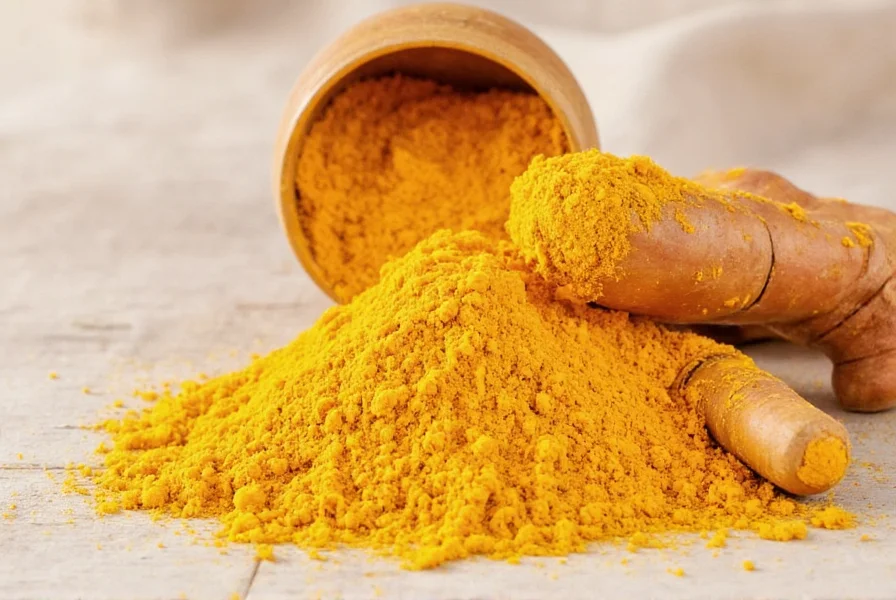When considering turmeric during pregnancy, it's essential to distinguish between culinary use and supplementation. This golden spice has gained popularity for its anti-inflammatory properties, but pregnancy requires special considerations for any dietary addition.
Understanding Turmeric and Its Active Components
Turmeric, a bright yellow spice commonly used in Indian cuisine, contains curcumin as its primary active compound. Curcumin is responsible for most of turmeric's studied health benefits, including anti-inflammatory and antioxidant effects. While these properties make turmeric appealing for general wellness, pregnancy creates a unique physiological state where even natural substances require careful evaluation.
Culinary Turmeric vs. Turmeric Supplements
The distinction between food use and supplementation is critical when addressing is turmeric safe during pregnancy:
| Type | Curcumin Content | Recommended During Pregnancy |
|---|---|---|
| Culinary turmeric (as spice in food) | 2-5% curcumin | Generally considered safe in normal food amounts |
| Turmeric supplements | 90-95% curcumin (standardized extracts) | Not recommended without medical supervision |
| Turmeric tea (commercial) | Variable, often concentrated | Use with caution; check with healthcare provider |
Research on Turmeric and Pregnancy Safety
Scientific research specifically examining turmeric's effects during human pregnancy remains limited. Most evidence comes from:
- Animal studies showing high doses may stimulate uterine contractions
- Pharmacological properties of curcumin that suggest potential concerns
- Clinical experience from healthcare providers
The primary concerns with high-dose turmeric during pregnancy include:
- Uterine stimulation - Curcumin may promote smooth muscle contraction
- Blood thinning effects - Could increase bleeding risk during delivery
- Hormonal interactions - Potential estrogenic activity at high doses
- Nutrient absorption - May affect iron absorption at therapeutic doses

Medical Organization Recommendations
Major health authorities provide consistent guidance on turmeric supplements while pregnant:
- The American Pregnancy Association states: "While turmeric is safe as a spice in food, pregnant women should avoid turmeric supplements due to insufficient safety data and theoretical risks."
- The National Center for Complementary and Integrative Health notes: "There is not enough reliable information to know if turmeric is safe to use during pregnancy."
- Mayo Clinic advises: "Don't take turmeric supplements during pregnancy. Turmeric might stimulate the uterus and put you at risk for premature birth."
Practical Guidance for Pregnant Women
If you're wondering how much turmeric is safe in pregnancy, follow these evidence-based recommendations:
- Food use is generally acceptable - Using turmeric as a spice in cooking (like in curries, soups, or rice dishes) at typical culinary amounts (¼-½ teaspoon) is considered safe
- Avoid supplements - Turmeric capsules, extracts, and concentrated forms should be avoided unless specifically recommended and monitored by your healthcare provider
- Be cautious with golden milk - Many commercial golden milk products contain concentrated turmeric; check with your provider before regular consumption
- Watch for interactions - If taking blood thinners or diabetes medications, turmeric may enhance their effects
When to Consult Your Healthcare Provider
Certain situations warrant specific discussion about turmeric tea during pregnancy or other forms:
- If you have a history of miscarriage or preterm labor
- If you're taking blood-thinning medications
- If you have gallbladder issues
- If you're scheduled for a cesarean section (due to bleeding risk)
- If considering turmeric for specific pregnancy-related concerns like inflammation
Conclusion: Balancing Benefits and Safety
While turmeric offers potential health benefits, pregnancy requires a precautionary approach. The benefits of turmeric for pregnant women in culinary amounts likely outweigh any risks, but therapeutic doses cross into uncertain territory. Always prioritize safety over potential benefits when it comes to pregnancy nutrition. The consensus among healthcare professionals is clear: enjoy turmeric as a flavorful spice in your food, but avoid concentrated forms and supplements unless specifically approved by your obstetric care provider.
Can I drink turmeric tea while pregnant?
Occasional consumption of mild turmeric tea made with small amounts of the spice is generally considered safe during pregnancy. However, many commercial turmeric teas contain concentrated extracts or additional herbs that may not be pregnancy-safe. It's best to consult your healthcare provider before making turmeric tea a regular part of your pregnancy diet, especially if it contains black pepper (which increases curcumin absorption) or other ingredients.
Is it safe to take turmeric for inflammation during pregnancy?
While turmeric has anti-inflammatory properties, healthcare providers generally recommend against using turmeric supplements specifically for inflammation management during pregnancy. The potential risks of high-dose curcumin outweigh the benefits when safer alternatives exist. For inflammation during pregnancy, consult your healthcare provider about pregnancy-safe options rather than self-treating with turmeric supplements.
How much turmeric is safe to consume daily during pregnancy?
In culinary amounts used as a spice in food (approximately ¼ to ½ teaspoon per serving, 2-3 times per week), turmeric is generally considered safe during pregnancy. This equates to about 500-1,000 mg of turmeric root powder daily when used moderately in cooking. The concern arises with therapeutic doses found in supplements, which typically contain 500-2,000 mg of concentrated curcumin - amounts not recommended during pregnancy without medical supervision.
Can turmeric cause miscarriage in early pregnancy?
There is no conclusive evidence that culinary amounts of turmeric cause miscarriage. However, some animal studies suggest that very high doses of curcumin (equivalent to therapeutic supplements, not food use) might stimulate uterine contractions. Major health organizations recommend avoiding turmeric supplements during pregnancy as a precaution, particularly in the first trimester when organ development occurs, but normal food use is not associated with increased miscarriage risk.
Is curcumin safe during pregnancy?
Curcumin, the active compound in turmeric, is not recommended in concentrated supplement form during pregnancy. While small amounts consumed as part of whole turmeric in food are considered safe, isolated curcumin supplements deliver much higher doses that may pose risks including potential uterine stimulation and blood thinning effects. The safety threshold for curcumin specifically during human pregnancy hasn't been established through clinical trials, so healthcare providers advise against supplementation.











 浙公网安备
33010002000092号
浙公网安备
33010002000092号 浙B2-20120091-4
浙B2-20120091-4